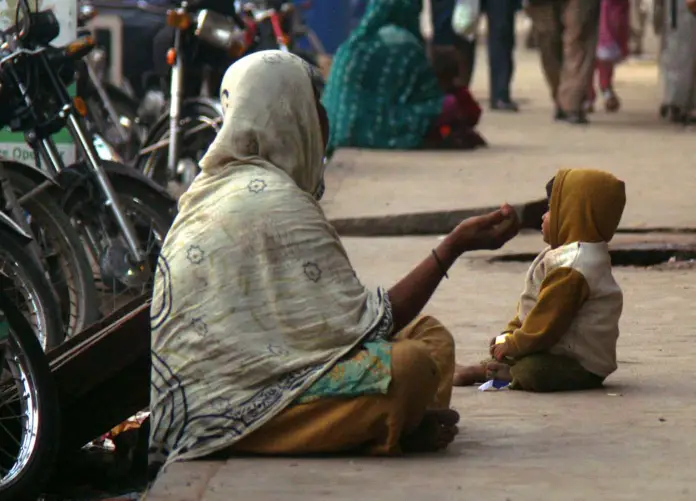Many among us have been confronted with the ethical dilemma of giving away spare change to men, women or children who knock at our windows incessantly to give them something in the name of God. The dilemma isn’t one that is fuelled by a lack of empathy for the poverty stricken, but by the longstanding knowledge that some exploitative handler is possibly monitoring the begging child or woman from afar, waiting for them to return with the day’s profits.
In recent days, the government has cracked down on gangs of beggars and their handlers. On the directive of Punjab Inspector General (IG) Rao Sardar Ali Khan, authorities arrested 1,495 members of the begging mafia. In a report that was produced by Director General Operations (DIG) Lahore, 1,430 cases were also registered in a one-week special operation from September 11-17. The DIG operations said that the campaign was on a scale that was unachieved previously.
In June this year, the Islamabad police conducted a similar operation and arrested 26 handlers. Additional Superintendent Police Farhat Abbas Kazmi said at the time that security footage from Safe City Cameras assisted in finding evidence of professional beggars in the capital city. Kazmi said that handlers picked up women and children from informal settlements and placed them at traffic signals to beg and gather profits on their behalf.
Behind these clean-up operations is a motive to curtail trouble caused by the ‘evil’ mafia to citizens through beggary on roads and outside eateries as people dine in their cars. Certainly, it is quite common for people to deliberate whether they should give money to women holding seemingly passed out children on traffic signals and in parking lots outside retail outlets.
Citizens also ‘prefer’ to give money to a child selling coloring books or a woman selling hair accessories instead of someone who outrightly asks for money. To that end, the campaign against beggary makes sense, especially if it stops the exploitation of children at the hands of their handlers. But as the operation enters its second week, the efforts must not cease at mere registration of cases and arrests. There needs to be a focus on rehabilitation of beggars who have suffered at the hands of their handlers. There needs to be a follow up to ensure children who have fallen victim to the mafia are taken care of. The DIG Lahore has insisted that citizens cooperate with authorities and report any begging activities at the 15 helpline. High-ups should also follow suit with a plan to ensure rehabilitation of the mafia’s victims, or else the urban poor would further be otherized in public consciousness.
The rhetoric needs to shift a little to empathize with those who suffer from the burgeoning unemployment in the country and are forced to spread their hands in front of others for survival. The authorities must be careful that their words do not blanketly criminalize and ostracize the poor in the eyes of well to do citizens.







